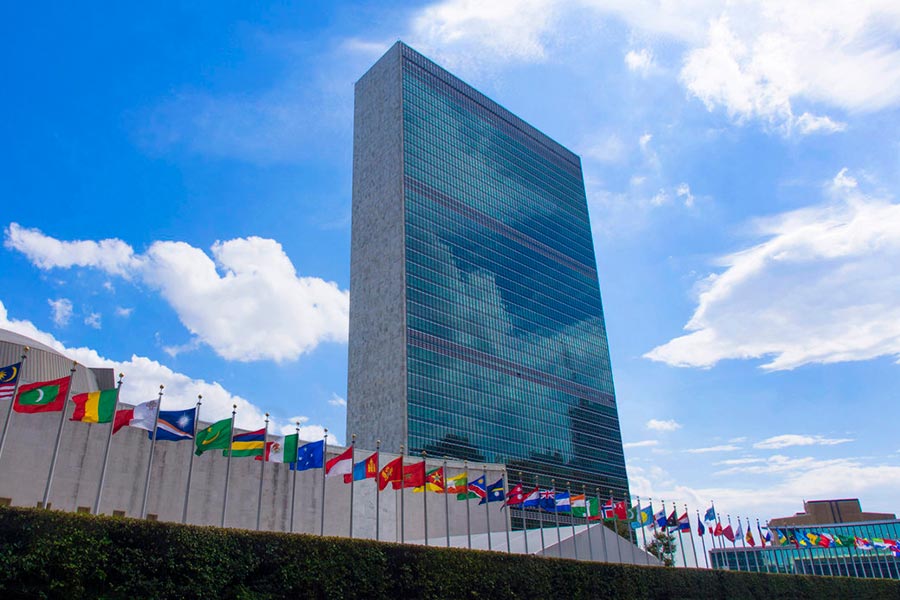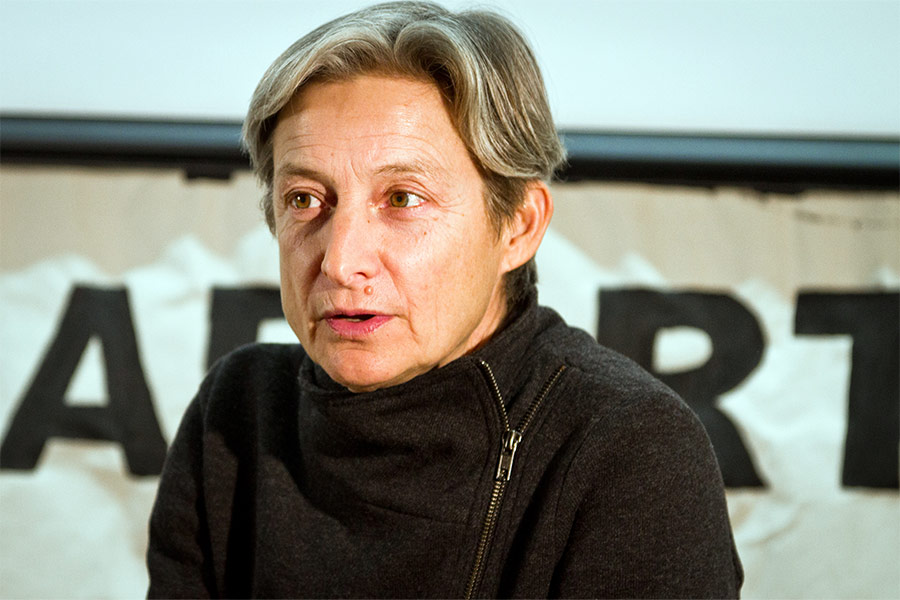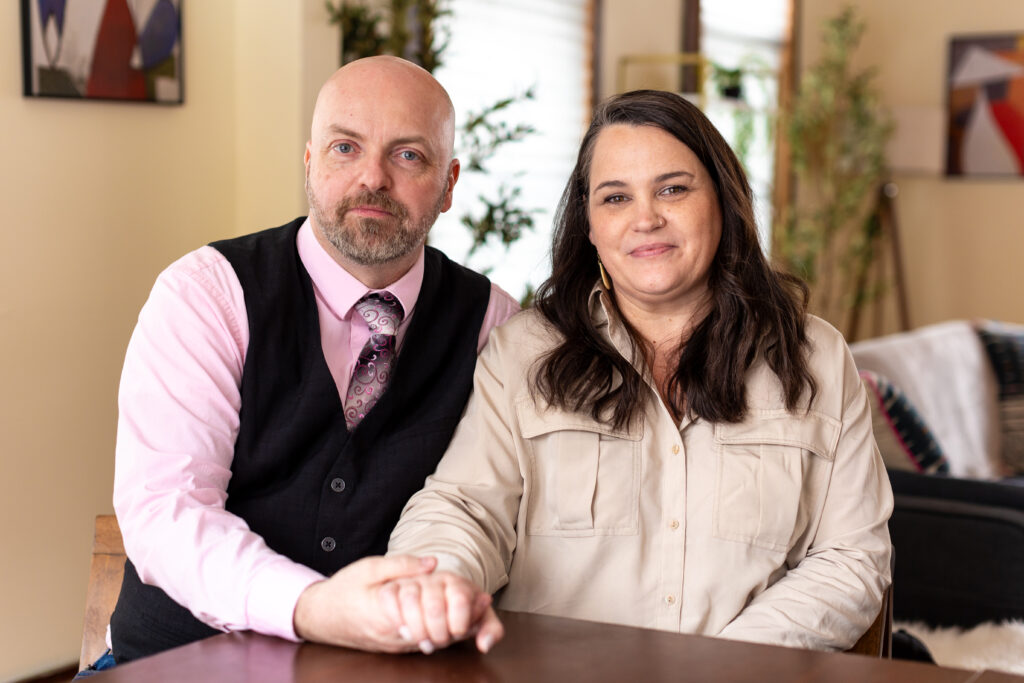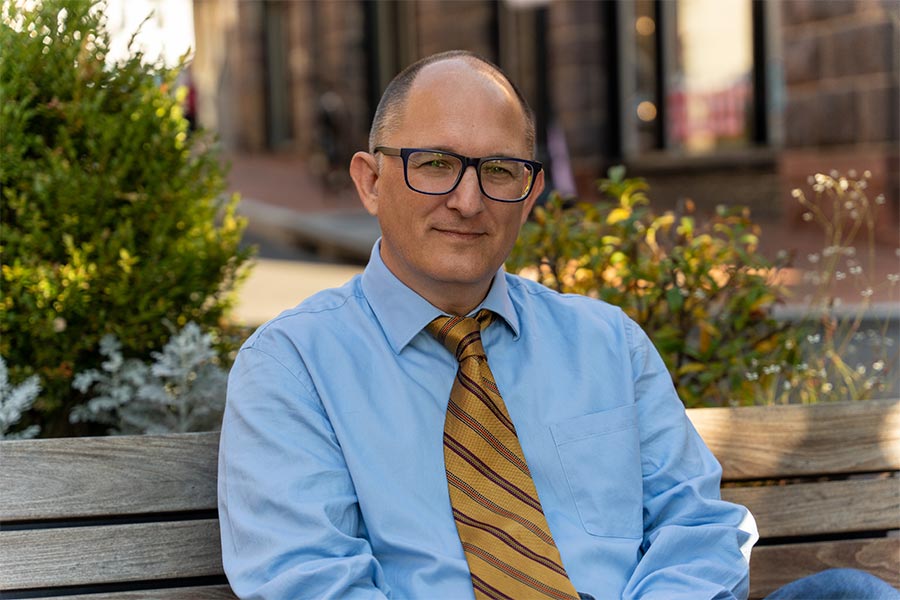
“Gender theory” sounds like one of those niche terms that you might hear at a lecture on a public university campus. In some sense, that’s true. You may not have heard of the term “gender theory,” but you have definitely seen its effects on our culture:
- Google trends show that terms like “gender identity,” “transgender,” “nonbinary,” “queer,” etc. have become more widely used.
- Increasing numbers of young adults and children are adopting “gender identities” that don’t conform with their biological sex.
- Children and teenagers are being encouraged to use puberty blockers and potentially sterilizing cross-sex hormones, or even undergo surgeries, if they feel like they were born in the wrong body or are unhappy with their biological sex.
- Matt Walsh’s documentary “What Is a Woman?” is considered groundbreaking because society can no longer answer that simple yet profound question.
Proponents of gender theory have contributed to the current confusion about gender and sexuality by undermining one of the most foundational realities of what it means to be human: the fact that we are created male and female. When we deny this reality, everyone loses.
But how did the events we see today come about? To answer that question, we need to understand how the word “gender” has morphed over time and become laden with additional meanings.
What is gender? Is there a difference between sex and gender?
The word “gender” comes from the Greek word genos and originally meant a “kind” or “type” of thing. In English, this definition of gender has fallen out of use today.
Historically, the word “gender” has had two other common definitions:
- Grammatical gender: Gender could refer to a grammatical feature for how many languages classify nouns, adjectives, and sometimes verbs. Grammatical gender is sometimes linked to real-world qualities like biological sex. For example, in Spanish, the word hijo refers to a male child, but hija refers to a female child. In this case, the -o and -a endings denote the grammatical gender of the words but also reflect the biological sex of the person. On the other hand, a word like sombrero (hat), though it is grammatically male with the -o ending, has no connection to a quality of the hat itself, which has no sex.
- A synonym for “sex”: Gender has also been a synonym for biological sex. The Oxford English Dictionary lists occurrences of this usage as far back as 1474, and it continues to be used today.
Over time, gender has taken on additional meanings. Though many people still use it as a synonym for biological sex, many academics and major institutions now define gender as the “socially constructed elements” associated with our biological sex. For example:
- A 2021 United Nations report on gender theory defines gender as “a term used to describe a socio-cultural construct that ascribes certain roles, behaviours, forms of expression, activities and attributes associated with biological sex characteristics. Under this definition, gender and sex do not substitute each other – they are autonomous concepts used to describe two different aspects of the human experience.”
- Likewise, the World Health Organization says, “Gender refers to the characteristics of women, men, girls and boys that are socially constructed. This includes norms, behaviours and roles associated with being a woman, man, girl or boy, as well as relationships with each other.”
In other words, “gender” refers to the ways various cultures and groups of people live out their sex in society. In and of itself, this distinction merely acknowledges what we can readily observe: that the differences between men and women affect the way we live, and that cultures have some differences in the social roles and expectations that they build around these biological realities.

But gender theorists (and major institutions like the UN and WHO) often go much further. They will either deny any connection between gender and biological sex or they will give priority to one’s self-asserted “gender identity” over biological sex. In defining who we are and how we are to live, gender theorists tell our bodies and our biology to take a back seat.
As Regent University English professor Micah Mattix writes, “Gender theorists espouse this fantastical position because they have taken the uncontroversial observation that some characteristics associated with gender are socially constructed and applied it to biological differences as well.”
All of this sets the stage for much of the current confusion around gender and sexuality. But while the effects of gender theory might seem new, the theory itself has been in the making for decades.
What is gender theory?
As a term, gender theory began to emerge in the 1980s, and by the end of the 20th century had developed into a field of study in the academy.
Although gender theory initially focused on questioning men’s and women’s roles in society, many gender theorists eventually began to question and deny the reality of sex itself.
Judith Butler and the deconstruction of sex
One such gender theorist was Judith Butler, a professor at UC Berkeley. Butler has written some of the most influential modern texts in gender theory, such as Gender Trouble (1990), Bodies that Matter (1993), and Undoing Gender (2004).
According to Butler, sex is no more real than gender. She writes, “If the immutable character of sex is contested, perhaps this construct called ‘sex’ is as culturally constructed as gender; indeed, perhaps it was always already gender, with the consequence that the distinction between sex and gender turns out to be no distinction at all.”
As University of Amsterdam professor Mari Mikkola explains, “For Butler, sexed bodies never exist outside social meanings and how we understand gender shapes how we understand sex. … When the doctor calls a newly born infant a girl or a boy, s/he is not making a descriptive claim, but a normative one.”
In other words, for Butler, a doctor declaring a baby to be a boy or girl is not a recognition of what the body intrinsically is, but an imposition of the culture’s expectations of what sex ought to be. Sex is said to be “assigned” at birth, rather than recognized. This designation is then reinforced by others throughout his or her life. This process is what Butler calls “performativity.” As she says in one video, “Nobody really is a gender from the start.” Instead, “We act and walk and speak and talk in ways that consolidate an impression of being a man or being a woman.”
Such a view simply does not align with basic observable science about the nature of the sexed body.

So, what is this view of sex and gender meant to entail? As Butler, who identifies as a lesbian, explained in a 2021 interview, her intent in writing her original bestseller Gender Trouble was not to discuss gender categories per se but to present “a critique of heterosexual assumptions within feminism.”
In other words, deconstructing sex and gender binaries would also deconstruct the expectations and norms around sexuality and sexual acts. This is where the most radical part of gender theory comes into play: queer theory.
Queer theory
The term queer theory was coined by Italian-American feminist theorist Teresa de Lauretis in 1991. In short, queer theory seeks to uproot any idea of societal norms about sexuality—what it labels “heteronormativity.” Heteronormativity is a word that means upholding heterosexual relations between a man and a woman as what is normal and right. Queer theorists deem such norms to be “oppressive” to “sexual minorities.”
As one textbook on the subject says, “Queer theory is about the deconstruction and the refusal of labels of personal sexual activity, and it is also concerned with the removal of pathologies of sexuality and gendered behaviour.”
In other words, any taboos about sexual behavior must be called into question, and even labels like “gay/lesbian” or “heterosexual/homosexual” should be questioned because they invoke an image of a gender binary. In queer theory, all lines society has drawn around sex and gender should be questioned, if not erased altogether.
This can lead to some outrageous claims. Journalist Christopher Rufo has collected a list of quotations from gender theorists and queer theorists documenting support for neopronouns, fetishism, sadomasochism, transvestitism, drag shows for children, and even normalizing child pornography and pedophilia. If the goal of queer theory is to deconstruct any and all boundaries and taboos around sexuality, this list should not surprise us.
But don’t worry; queer theorists insist that the removal of taboos is for everyone’s good.
As Eve Sedgwick, another founder of queer theory, told The New York Times in 1998, “I think it’s ridiculous to say ‘queer theory’ is not about ethical responsibility. There is an ethical urgency about queer theory that is directed at the damage that sexual prohibitions and discriminations do to people.” In other words, the lines society draws around sex/gender and sexuality are supposedly more damaging than what erasing them will cause.
But tearing down these boundaries has already led to harm, especially for women and children.
The effects of gender theory today
While gender theory claims to liberate society, it ultimately undermines society’s rationale for protecting women and children because it can neither give an objective definition of what a man or woman is nor offer a rationale for why certain sexual boundaries ought to exist.
If gender and sex are merely social constructs and something like the word “woman” can’t be objectively defined, how can we pass laws meant to protect women? If the elimination of sexual ethics is a good thing, why shouldn’t children be taught lessons on sexuality in early elementary school?

For years, Alliance Defending Freedom has been on the front lines defending the reality of biological sex, the rights of parents to direct education and health-care decisions for their children, and the rights of people of faith to live out their beliefs that we are created male and female.
The following examples are just some of the ways we have seen gender theory lead to dire consequences.
Women’s sports
In 1972, Congress passed Title IX, which facilitated the establishment of women’s sports programs. Now, these accomplishments are being undermined because schools and athletic organizations are allowing men who identify as women to compete in women’s sports.
Despite clear evidence showing that males have significant biological advantages over females (even when taking testosterone suppression), and despite the growing list of men breaking records in women’s sports, women and girls continue to be denied hard-earned recognitions and opportunities because the reality of biological sex is being ignored.
In 2024, the Biden administration officially adopted new rules redefining “sex” in Title IX to include “gender identity.” In practice, the rules will gut equal opportunities for women, erode student privacy, undermine free speech, and threaten women’s sports.
ADF has filed multiple lawsuits challenging the Biden administration’s radical redefinition of sex. In three of those lawsuits, we’ve joined coalitions of states to protect the original meaning and purpose of Title IX. In two others, we represent a pair of school districts—one in Texas and one in Louisiana.
As of July 2024, federal district courts in all five cases have halted the Biden administration’s actions while the lawsuits move forward. What’s more, in January, a federal district court blocked the rule change nationwide, preventing the federal government from enforcing it anywhere.
Meanwhile, ADF’s many other cases representing female athletes continue.
In Hecox v. Little, which we’ve asked the U.S. Supreme Court to hear, we represent athletes Madison Kenyon and Mary Kate Marshall of Idaho. In B.P.J. v. West Virginia State Education, we represent former collegiate soccer player Lainey Armistead. We are also asking the Court to hear this case.
Women’s shelters
In Anchorage, Alaska, ADF successfully defended Downtown Hope Center, a Christian nonprofit organization that offers job-skills training, daily meals, laundry, and clothing for the city’s homeless men and women—all free of charge. At night, the Hope Center also offers a free shelter for women only, a safe place for the many homeless women to escape from abusive situations and even sex trafficking.
Despite the Hope Center’s track record of good work, the city government in Anchorage went after the ministry because it would not allow men who identified as women to sleep in the women’s shelter. Many of the women who come to the shelter have suffered rape, physical abuse, and domestic violence at the hands of men. They should not be forced to sleep or change clothes in the same room as a man.
But if Anchorage officials had gotten their way, these women could have been forced to sleep only a few feet away from a man.
Women in other sex-segregated spaces like women’s prisons have also suffered because the government chose to recognize a person’s “gender identity” over the reality of their biological sex.
Adoption and foster care
Gender theory has also crept its way into the adoption and foster care systems. Some government agencies are requiring people to adopt the government’s view on gender and sexuality before they can adopt or participate in foster care programs.

- In Oregon, ADF is representing Jessica Bates, a mother of five. As a Christian, Jessica felt called to adopt after listening to a religious broadcast about the topic. Unfortunately, Oregon denied her adoption application because it requires her to “respect, accept, and support” the “sexual orientation” and/or “gender identity” of any child placed in an applicant’s home.
This means applicants must agree to use a child’s preferred pronouns, take a child to events like Pride parades, or facilitate an adolescent’s access to pharmaceutical interventions like puberty blockers and cross-sex hormones. Jessica shouldn’t have to choose between abandoning her beliefs and adopting a child. The government cannot exclude families from foster and adoption programs solely because they are religious or because the state doesn’t like their religious views. - In Vermont, ADF represents a pair of Christian couples with proven track records of providing a loving home for children in need. Brian and Katy Wuoti and Bryan and Rebecca Gantt have fostered children for years. But the state’s Department for Children and Families revoked the licenses of both couples after they explained that they could not violate their Christian beliefs.
- In Washington, Shane and Jenn DeGross had served as foster parents for nearly a decade. But when they couldn’t agree to promote views about gender ideology that conflicted with their faith, the state denied their application to renew their license. ADF has filed a lawsuit on the DeGrosses’ behalf.
When the government discriminates against people of faith and prioritizes its radical gender ideology over placing children in loving homes, it is the children who ultimately suffer. We need more families willing to take in children, not fewer.
Education and parental rights
ADF is challenging school policies across the country that seek to “socially transition” children to the opposite sex at school while hiding their efforts from parents. In Michigan, the Rockford Public School District betrayed the trust of parents Dan and Jennifer Mead by secretly referring to their daughter by a masculine name and male pronouns. ADF attorneys have filed a lawsuit against the district on the Meads’ behalf.
School districts are also drafting teachers into their army of gender ideologues by forcing them to participate in this process. In Virginia, Harrisonburg City Public Schools required teachers to ask for and use any names or pronouns a student requested, even if inconsistent with their sex, and then conceal this information from parents. After ADF filed a lawsuit, the school board agreed to respect the constitutional rights of its teachers to do their jobs in accordance with their beliefs.
These types of policies violate the rights of parents and teachers and can lead to tragic outcomes for students. While ADF has seen several significant victories in this realm, our efforts are far from over.
Health care
Children struggling with gender confusion are especially susceptible to the erroneous and unscientific advice of health-care professionals who advocate for “transitioning” children socially, hormonally, and surgically—even though such surgeries are harmful and irreversible and can even result in sterilization.
- ADF is currently helping to defend a law in Alabama that prohibits these dangerous, unproven, and unnecessary medical procedures for minors.
- In United States of America v. Skrmetti, the Supreme Court is considering whether a similar law in Tennessee is constitutional. ADF filed an amicus brief in the case.
Doctors, health-care professionals, and hospitals who maintain a commitment to “do no harm” and follow the scientific evidence over gender identity ideology have also become targets of the government.
- ADF is currently representing Christian Healthcare Centers, a Michigan faith-based medical nonprofit that provides high-quality primary medical care, particularly to those who cannot afford such care.
After Michigan courts reinterpreted state civil-rights laws to include “sexual orientation” and “gender identity,” the ministry is now required to provide cross-sex hormones, address people with pronouns inconsistent with their biological sex, and even hire employees who do not share the ministry’s religious beliefs—contrary to its beliefs and medical judgment.
Within health care, ideologues attempt to quash any dissent challenging the outworking of gender theory, and medical experts in academia are being targeted for speaking out.
- Dr. Allan Josephson is one such expert. For nearly 15 years, Dr. Josephson was the Division Chief of the Division of Child and Adolescent Psychiatry and Psychology at the University of Louisville.
But when he spoke at a think tank in Washington, D.C., regarding his professional views on treatments for childhood gender dysphoria, the university demoted, harassed, and later fired him for what he said. ADF has filed a federal lawsuit against University of Louisville officials on behalf of Dr. Josephson.
Free speech
For years, proponents of gender theory have made efforts to shape the very language we use—and this is now having implications for free speech.
In Colorado, ADF is representing Kaley Chiles, a licensed professional counselor who speaks with clients about the goals they’ve set for themselves. A state law threatens Kaley’s ability to do that, barring her and other counselors from saying anything to clients under 18 that would encourage them to “change behaviors or gender expressions or to eliminate or reduce sexual or romantic attractions” toward individuals of the same sex. ADF represents Kaley, and we’ve asked the Supreme Court to hear her case.
Gender theory and its philosophical deconstruction of the gender binary have also opened up the possibility of “preferred pronouns” based on claims of “gender identity,” rather than pronouns being a reflection of biological sex. The rise of these “preferred” pronouns has had implications for freedom of speech, as governments are forcing public servants like teachers and professors to use the preferred pronouns of their students.
- In Ohio, ADF won a case at the U.S. Court of Appeals for the 6th Circuit on behalf of Dr. Nicholas Meriwether after Shawnee State University punished him for not using a student’s preferred pronouns. Thankfully, the 6th Circuit ruled in Dr. Meriwether’s favor, saying that the university had violated his right to free speech.
- ADF also successfully defended high-school French teacher Peter Vlaming before the Virginia Supreme Court after he was fired for declining to use pronouns, and thus express messages, that contradicted his core beliefs about gender and what is best for his students. To settle ADF’s lawsuit, the school board in Peter’s district agreed to pay $575,000 in damages and attorneys’ fees and clear Peter’s firing from his record.

This is but a small sample of ADF’s cases that relate in one way or another to the outworking of gender theory. From women’s athletics to women’s shelters, from doctors to teachers and even beauty pageants, the espousal of gender identity ideology derived from gender theory has had wide-reaching implications for nearly every sector of society.
Conclusion
G.K. Chesterton once wrote that before tearing down a fence, one should ask why it was put there in the first place. Many proponents of gender theory fail to ask this question, instead insisting that any “fence” or boundary we have around gender and sex is oppressive, causes harm, and must be torn down.
While genuine questions can be raised about gender roles or stereotypes, one cannot deny the reality of biological sex without creating victims: protections and opportunities for women are being rolled back; increasing numbers of children are being confused about their identity; and the bodies of both children and adults are being mutilated based on false promises of relief from their gender confusion.
When culture refuses to acknowledge the fundamental truth that we are created male and female in the image of God, everyone loses. We cannot deny the most foundational realities of what it means to be human.

-150x150.jpg)
-500x500.jpg)



